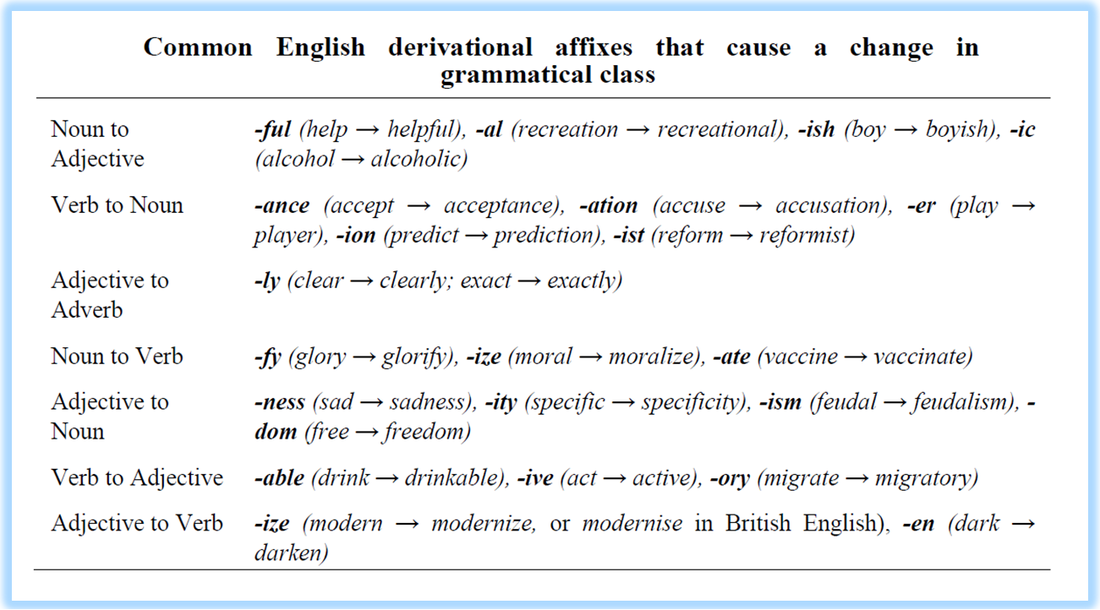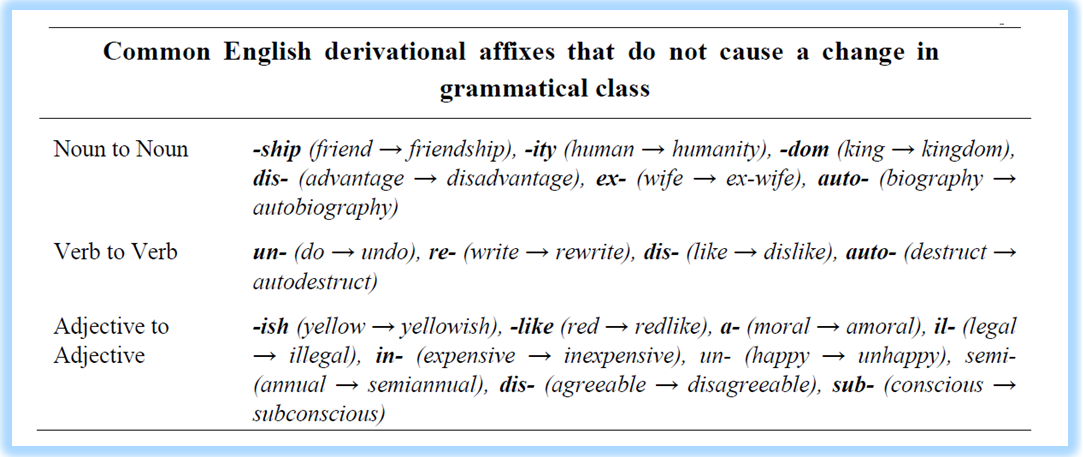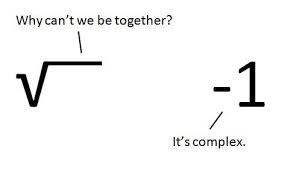
So far, we have dealt with different types of English morphemes and highlighted numerous issues among them. We have also identified that derivational morphemes are used to create or derive new words or to make words of a different grammatical class from the stem.
In fact, derivation is by far the most common word formation process in the creation of new English words. Thus, it deserves a more comprehensive study in order to get better insights into the word formation process in English.
For the most part, the core of the derivational process is an already existing word, to which we attach affixes. These affixes are usually described as prefixes and suffixes and they are not usually listed separately in dictionaries. Such affixes usually apply to words of one
lexical category (part of speech) and change them into words of another such category.
Some common examples include un-, dis-, mis-, -ness, -ish, -ism, -ful and -less, as in words like unkind, disagree, misunderstand, kindness, childish, behaviourism, useful and useless. We call the word form created by the addition of a derivational morpheme a derived word. The next two pictures contain typical examples of English derivational pattern and their affixes.

The derivational suffixes illustrated above change the grammatical category of the words to which they are attached. In contrast, some derivational suffixes do not cause a change in the grammatical class of words (Image below), and prefixes never change the category.

These derivational morphemes are not words on their own. Like content words, however, they obviously possess semantic content since every derivational morpheme attached to a base adds meaning to the derived word. The derivational morpheme does not necessarily change the grammatical category of the newly created word.
When words contain two or more affixes, they are also referred to as complex words, as opposed to simple words that cannot be analyzed into meaningful parts. Such morphologically complex words are composed of a morpheme root and one or more affixes. Some examples of English roots are act in deactivation, system in unsystematically, ceive in perceive, and cred in incredible. For practical purposes, linguists sometimes use the word base to mean any root or stem to which an affix is attached. Among the elements that can be stripped from deactivation are act, active, activate, and deactivate, which are all bases. In brief, we can say that a root may or may not stand alone as a word (Fromkin et al. 2011, p. 47).


Powered by Create your own unique website with customizable templates. Get Started